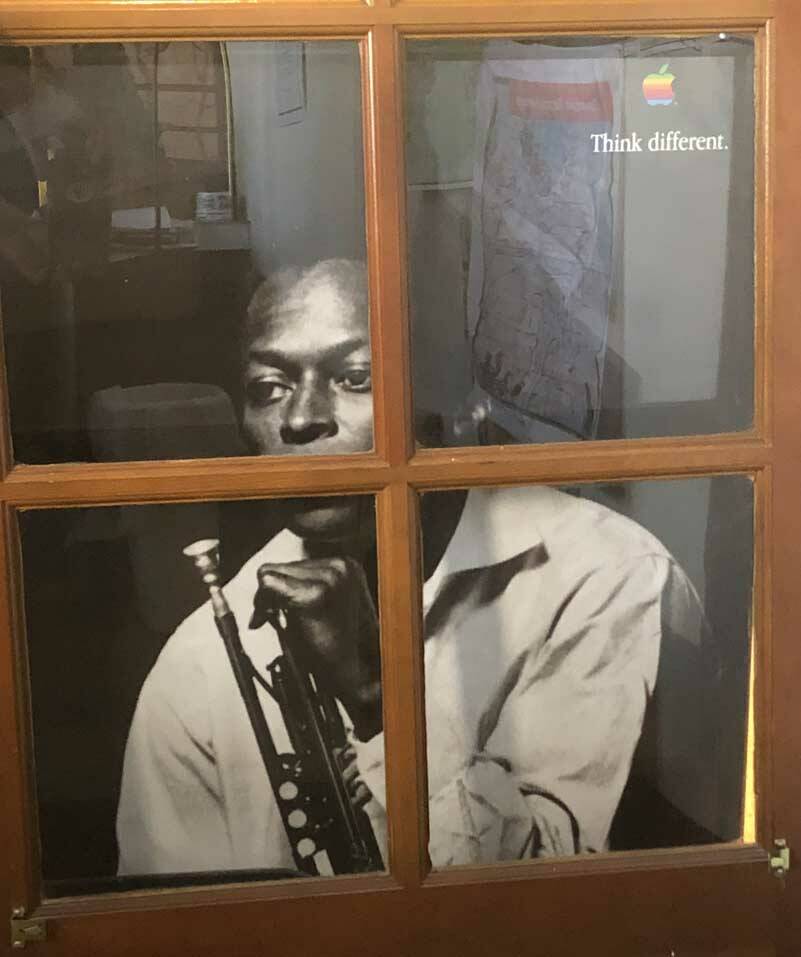By Morf Morford
Tacoma Daily Index
It’s true of any business or employment contract, but it’s also true of any good idea (by “good idea” I mean one worth pursuing, if not sharing).
I don’t know about anyone else, but nine out of ten conversations with my wife go something like this: she makes a statement or asks me to do something.
I virtually never know what she is talking about and have to ask what she means or what she is referring to.
She might ask me for example, to look at a door.
Which door? Hinges? Paint? Loose doorknob? Lock? Squeaks?
With just a single word, or two, she could clarify which door and what issue/problem or fix she is focussed on.
But we all probably do this; we have an issue or problem in our minds and not every dimension of it makes it out into the world of words so other people know what we are talking about.
Jeff Bezos has used an interesting approach to this problem – put it in writing.
I’m guessing that we’ve all been to meetings where half-baked ideas are thrown out and most of the meeting is spent trying to pin down and make sense of the proposal.
Bezos has a far better system.
Any new strategy, product or idea could only be presented after a week or so had been spent on exploring and “leaning on” the proposal.
And then, in written form, the idea is presented to the committee and twenty minutes or so is dedicated to reading, analyzing and making notes about the proposal.
Have you ever experienced this?
You have a question for a colleague, but when you ask it, they don’t quite follow. You try to explain it, but as you do, you clumsily fumble your words — only to discover that you haven’t completely thought through your question.
After experiencing this problem too many times myself, I’ve started writing down questions before asking them.
Almost every time, when I do this, a very strange thing happens:
I either:
1) discover that I actually need to ask a completely different question,
2) no longer see the need to ask the question, or
3) I figure out the answer to the question myself.
There’s a simple reason for this: Clear writing leads to, even forces, clear thinking, and, as is often the case, the opposite is also true: clear thinking forces or demands clear writing.
So, the next time you want to learn something, understand another person or a new idea, remember something important, apply a new principle or communicate with anyone, or even better, leverage the collective intelligence of your team, take a cue from Jeff Bezos and put it in writing.
And now, a few words about Elon Musk
If there is anything that sets the geniuses and game-changers apart from the rest of us, it is their restless hunger for learning.
From Bill Gates to Warren Buffet to Steve Jobs and many more, it’s not so much that they are so smart, but that they kept on learning.
Elon Musk is no exception.
Musk learned long ago that learning is what we, as humans do.
As a teacher, I’ve heard that dreaded (and lazy) question, “Will this be on the test?”
Any given fact, correlation or insight may or may not be on any test, but you never know how some stray fact or shift in perspective might change how you think about the entire situation.
In or out of school, reading and encountering ideas and discoveries is how we learn and make sense of the many puzzles of life.
And, even if we don’t find the answers, we can ask better questions.
Elon Musk’s career is packed with unlikely associations from finance (Paypal) to psychology to engineering.
The overlap or collision between established fields is where the ideas emerge.
A few of Elon Musk’s driving principles are these (more can be found here: https://engineercalcs.com/elon-musk-learning-strategy/).
Get as close as possible to the basic principles
Whether it is finance, auto marketing or space engineering, what are the non-negotiable basics?
Ever hear of the principle that some people didn’t know it was impossible, so they did it anyway?
Get out of that comfort zone
If you’ve done it before, or if it is what everyone else does, why spend any time or energy on it?
Jump into that new territory, read books by people you’ve never heard of.
Ask challenging and unsettling questions.
Learn from those who know more than you do, and build relationships with them.
Don’t be afraid of making mistakes.
If we learn from our failures and mess-ups, some of us are certifiable geniuses.
Problems and disasters are the ultimate learning labs.
Avoid easy answers, tried and true formulas and people that always agree with you. Nothing could be more paralyzing.
If you want to go where everyone else has already gone, you’ll find a well-established path, even a highway.
If you want to invent something no one else has, you need the basics and the readiness to step into new territory.
And if you want to go where no one else is going, prepare for a long, and often lonely journey.
But you’ll have an experience, and a view, like no one else.





